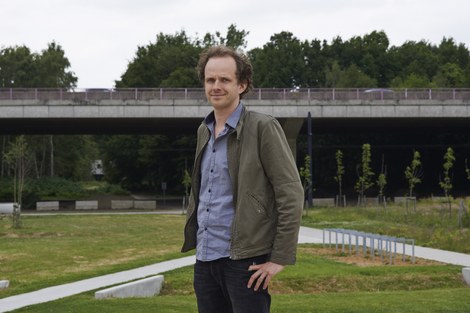Which planet do you choose? - Hans Verbeeck
"Planet B"
At the beginning of 2050, the CO2 concentration in the atmosphere will exceed 550 ppm (parts per million). Fortunately, there has recently been a reversal in the rise in greenhouse gas concentrations: it is the result of the drastic mitigation measures that were finally taken in the 2040s and the shrinking world economy over the past 20 years. Compared to the year 2000, the temperature has increased by just under 2 ° C. The temperature rise is expected to continue well into the 22nd century.
Bioengineers will continue to play a key role in the further adaptation of the agricultural system and the management of natural resources to these conditions. Economists estimate that current annual spending on climate adaptation would have been 8 times lower had we resolutely opted for emission reductions and circular economy in the 2020s. As a result, the average living standard in Belgium has decreased significantly in the past 20 years for the first time since the start of the industrial revolution.
"Planet A"
At the beginning of 2050, the atmospheric CO2 concentration will drop below 450 ppm for the first time. It is expected that in ten years time we will be back to the levels of 2020 (400 ppm), and that the climate system will reach a new equilibrium by the end of this century. The temperature has risen by 1 ° C since 2000 through the application of drastic measures in which sustainable ecosystem management, innovative agriculture and technological development went hand in hand.
The way in which we consume, produce food and move around today is nothing like the situation in 2020. Who can imagine today that 5 to 10 thousand square kilometers of Amazon forest were cut down every year? That you could fly from Brussels to Barcelona for only 30 euros? That ecosystem services have not yet been included in the national budget? Bioengineers have played a key role in developing sustainable technology and natural resource management over the past 30 years. Their knowledge will also remain crucial in the coming decades for us to adapt further to global warming.

